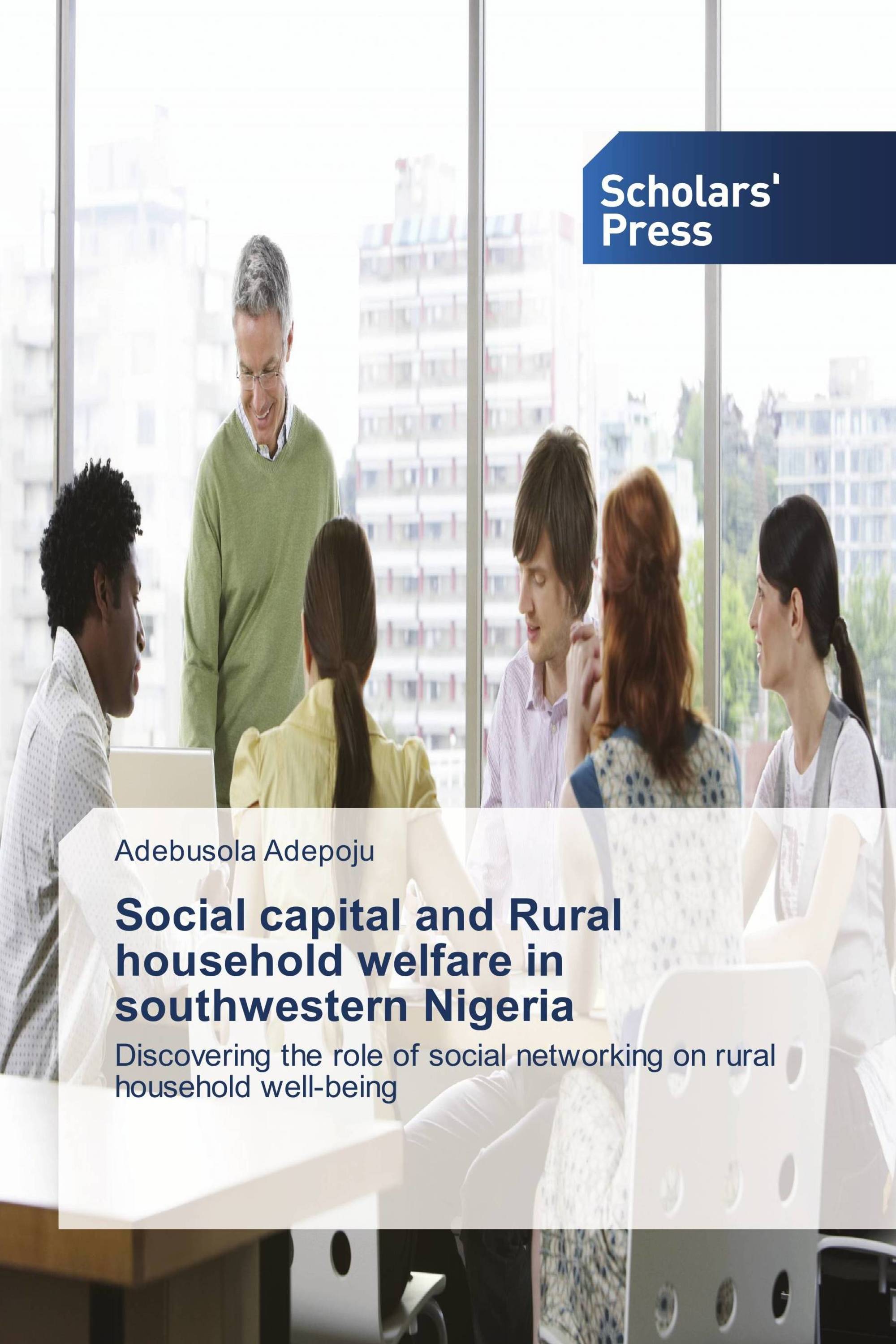Social capital and Rural household welfare in southwestern Nigeria
Discovering the role of social networking on rural household well-being
€ 79,90
Rural welfare remains low in Nigeria as the traditional capital (physical,human,natural& financial) has not fully led to its improvement. There is increasing shift of attention to social capital as an element that explains household welfare. The nexus between social capital and rural household welfare in southwestern Nigeria has not been fully examined. Multistage sampling technique was used to select 2 states from southwestern Nigeria based on poverty profile. Data were analysed using descriptive statistics, 2SLS &Control function. Mean age, years of education &household size were 48.3yrs, 8.4yrs &6 respectively. Households attended 4 out of every 5 meetings scheduled. Heterogeneity index was 21.7 while annual cash & labour contribution to group were N7,412.95 &54.6 man-days respectively. The highest Welfare Tercile(WT) had monthly mean per capita expenditure of N9,135.98 which was 4times the value for the lowest WT (N2,239.82). Household welfare reduced with increase in age, being married &household size while it is increased by age squared, education &DM. Non-linear interaction of social capital with unobservable variables also increased effect of social capital by 13.1%.
Book Details: |
|
|
ISBN-13: |
978-3-639-71796-9 |
|
ISBN-10: |
3639717961 |
|
EAN: |
9783639717969 |
|
Book language: |
English |
|
By (author) : |
Adebusola Adepoju |
|
Number of pages: |
176 |
|
Published on: |
2015-03-09 |
|
Category: |
Social structural research |
